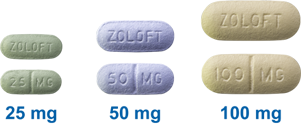Zoloft for Anxiety: A Comprehensive Guide to Treatment
Anxiety, a prevalent mental health concern, affects millions worldwide, driving the search for effective interventions to alleviate its impact. Among the potential treatments, Zoloft for anxiety has garnered significant attention as a pharmaceutical solution. This article delves into the realm of using Zoloft for anxiety management, exploring its mechanism of action, potential benefits, considerations for use, potential side effects, and its role within the landscape of anxiety treatment approaches.

Understanding Anxiety and the Pursuit of Relief
Anxiety disorders encompass a spectrum of conditions marked by persistent worry, fear, and unease. As individuals strive to manage these symptoms, the concept of using Zoloft for anxiety emerges as a promising avenue that targets the emotional and cognitive aspects of this condition.
Zoloft for Anxiety: Mechanism and Potential Benefits
Zoloft, known by its generic name sertraline, is a selective serotonin reuptake inhibitor (SSRI) that affects the availability of serotonin in the brain. The consideration of Zoloft for anxiety arises from its potential to enhance mood regulation and alleviate anxiety-related symptoms by increasing serotonin levels.
Efficacy and Considerations for Use

Research and clinical practice have illuminated the potential benefits of using Zoloft for anxiety. Its role as an SSRI makes it effective in managing both anxiety and depressive symptoms. However, it's important to recognize that the effectiveness of Zoloft for anxiety can vary among individuals, and its suitability depends on the specific nature of the anxiety disorder.
Potential Side Effects and Monitoring
As with any medication, using Zoloft for anxiety comes with potential side effects. These may include nausea, insomnia, and sexual dysfunction. Healthcare providers closely monitor individuals using Zoloft for anxiety to ensure that the benefits outweigh potential risks and side effects.
Appropriate Dosages and Integration with Comprehensive Approaches
Determining the appropriate Zoloft for anxiety dosage requires careful evaluation by healthcare professionals. Moreover, Zoloft is often considered as part of a comprehensive anxiety management plan. Combining medication with therapy, lifestyle adjustments, and other interventions can provide a more holistic approach to addressing anxiety symptoms.
Navigating the Role of Zoloft for Anxiety
The exploration of Zoloft for anxiety highlights the ongoing endeavor to find effective solutions for anxiety disorders. While its potential benefits in mood regulation and anxiety symptom relief are recognized, it's essential to approach Zoloft for anxiety with informed caution. Engaging in thorough conversations with healthcare professionals allows individuals to navigate the potential benefits and considerations, ensuring choices are well-informed and aligned with their specific circumstances and overall well-being.

Conclusion: Evaluating Zoloft for Anxiety Management
The concept of using Zoloft for anxiety introduces a multi-faceted perspective on anxiety treatment. While it may not be a one-size-fits-all solution, its potential to alleviate both mood and anxiety symptoms cannot be ignored. Engaging with healthcare professionals and maintaining open communication enables individuals to navigate the potential benefits and considerations of Zoloft for anxiety, making choices that prioritize their mental well-being and overall quality of life.